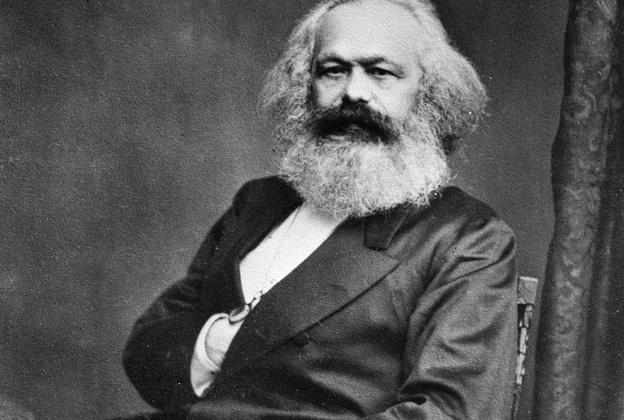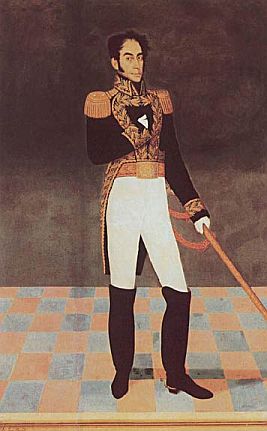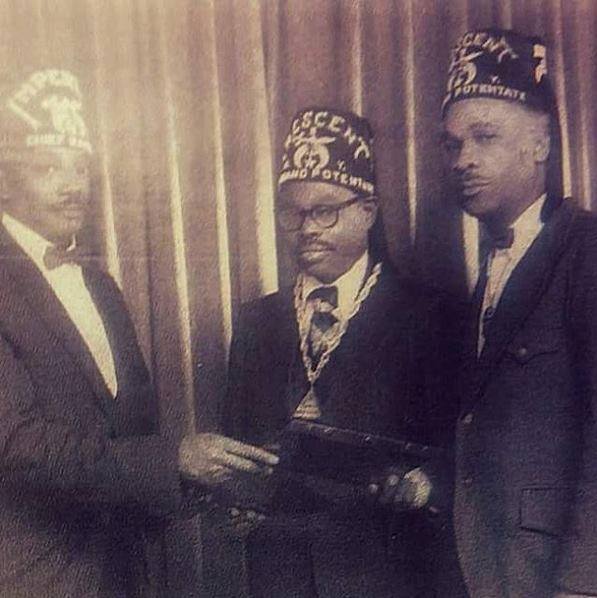BlackDiBiase
Superstar

as you can see, he was excluded and non the wiser of the baphomets presence right there.















please explain how can beat down his slave master, escape the plantation and live to the freedom fighter we know him for today
Honestly, I don't think we will ever know. I don't think he was - I just think Black people - especially free Black people were close knit back then - and supported each other out in the open. It seems like Masons back then were open about their membership opposed to the present - with it being some sort of secret thing.
Mr. Douglass' circle was filled with abolitionist - and many were Mason - white and black. Separate but definitely not equal. I think due to his connections and circle - he was rumored to be a Mason - but it's was never confirmed.
please explain how can beat down his slave master, escape the plantation and live to the freedom fighter we know him for today
please explain how can beat down his slave master, escape the plantation and live to the freedom fighter we know him for today
i think you are right, many "others" where trying to include him in the abolishment speakings and he had his own paper. after the civil war is when that photo was taken and it doesnt appear he was initiated just yet.
he bought his way out of slavery with help from his first wife, his still a good man. alll i dont like the mason exlcusion and segregation they practice. FD was and still is a good man, in my humble eyes.
i just find the masons who borrowed their foundation from african mythology very real interesting and concerning.
I agree. My daddy was a Mason - and after finding his Mason Bible and some other stuff - I still don't get it. But, does have a lot of African - Egyptian content and images in the Bible.
you don't beat up the people you revere,white people didn't see him from your perspective, Frederick Douglas was a ver confrontational brother. his newspaper was considered militant and anti white, he would bust into the white house without an appointment and cuss out president Lincoln.Also, you should read The Delectable Negro: Human Consumption and Homoeroticism within US Slave Culture it goes into Frederick Douglass.
Douglass was very white identified and he really looked up too and revered white people - especially white men. That's probably why he is well known and loved.
you don't beat up the people you revere,white people didn't see him from your perspective, Frederick Douglas was a ver confrontational brother. his newspaper was considered militant and anti white, he would bust into the white house without an appointment and cuss out president Lincoln.
one he did not treat his white wife well at all. 2 the president wife tells a different story about mr Douglas boldness in the white house. 3 you must not have read his newspapers, if you did, you can't tell me that ol Frederick was fond of white peopleHe was enslaved while he beat up his overseer his owner leased him out to -- the overseer/small farmer had a reputation as a "slave-breaker." If you read his narrative(s) - his overseer was very violent and cruel -- Douglass recounts that he beat him 5-6 times per week. So Douglass did what he had to do. Douglass really cared about his enslaver/master(s) -- if you read his works and know who he eventually married -- you will know he wasn't anti-white - nor militant.
He was revolutionary - his story, the success of his paper, narrative(s) and his ability to be a writer, orator, and a well-connected/supported abolitionist -- was something only he could claim during that period.That doesn't mean he didn't like White folks - he just didn't like those who supported the system. He believed they just needed to see us acting like them/living like them -- and they [whites] would change.
In an extraordinary display of forgiveness, Douglass writes to Hugh Auld, his former master: “I love you, but hate slavery.”
But, we have to agree to disagree -- as I feel like he did revere them. Maybe it was that he looked up to them. He deserved to be and wanted to be seen as a man -- as an equal -- to them - and needed/sought their validation. It was something he grappled with - and understandably so.
It wasn't until after Lincoln died and during Reconstruction he became more bold in public -- and said some things that were seen as "militant." Like calling Lincoln "the white man's president."
On April 14, 1876, Douglass delivered the keynote speech at the unveiling of the Emancipation Memorial in Washington's Lincoln Park. In that speech, Douglass spoke frankly about Lincoln, noting what he perceived as both positive and negative attributes of the late President. Calling Lincoln "the white man's president", Douglass criticized Lincoln's tardiness in joining the cause of emancipation, noting that Lincoln initially opposed the expansion of slavery but did not support its elimination. But Douglass also asked, "Can any colored man, or any white man friendly to the freedom of all men, ever forget the night which followed the first day of January 1863, when the world was to see if Abraham Lincoln would prove to be as good as his word?"[81] Douglass also said: "Though Mr. Lincoln shared the prejudices of his white fellow-countrymen against the Negro, it is hardly necessary to say that in his heart of hearts he loathed and hated slavery...." Source
On the White House: Douglass met Lincoln twice. The event you are talking about is Lincoln's inaugural address - he didn't burst in - he actually went to his address and then went to go to the inaugural event after the address. At the event he was refused entrance at first - but he was with an White ally - Mrs. Dorsey - and they were escorted outside. He never cursed him out or burst into the White House. He was never dumb or disrespectful in his approach.
“No man of my race, color or previous condition, had ever attended such a reception, except as a servant or waiter… we found ourselves being conducted through an outside window on a plank for the exit of the visitors.”On White Validation: It is during slavery that the orator first develops the habit of romanticizing and identifying himself with the white male aristocracy.
To a gentleman who was passing at the moment I said, “Tell Mr. Lincoln that Frederick Douglass is at the door and is refused admission.” I did not walk the plank, and, to the policeman’s astonishment, was especially invited into the spacious East Room, and we found ourselves in a bewildering sea of beauty and elegance [applause], such as my poor eyes had never before seen in any one room at home or abroad. High above every other figure in the room, and overlooking the brilliant scene, stood the towering form of Mr. Lincoln, completely hemmed in by the concourse of visitors passing and taking his hand as they passed. The scene was so splendid, so glorious that I almost repented of my audacity in daring to enter.
But as soon as President Lincoln saw me I was relieved of all embarrassment. In a loud voice, so that all could hear, and looking toward me, he said, “And here comes my friend, Frederick Douglass!” [Good! Good!] I had some trouble in getting through the crowd of elegantly dressed people to Mr. Lincoln. When I did succeed, and shook hands with him, he detained me and said, “Douglass, I saw you in the crowd today, listening to my inaugural address. How did you like it?” I replied, “Mr. Lincoln, I must not stop to talk now. Thousands are here, wishing to shake your hand.” But he said, “You must stop. There is no man in the United States whose opinion I value more than yours. How did you like it?” [Applause.] I said, “Mr. Lincoln, it was a sacred effort,” and passed on, amid some smiles, much astonishment and some frowns. And this was the last time that I heard the voice and saw the face and form of honest Abraham Lincoln.
This sacred, maternal memory is connected to feelings of safety, the relieving of the slave child’s suffering, and a longed-for home space. When he felt in this way toward white male allies, such as Garrison, John Brown, and President Abraham Lincoln, Douglass usually also romanticized these men, describing them as perfect examples of “beauty.”83 Douglass reenacts this need for home and safety in The Life and Times of Frederick Douglass.
Approximately ten years after Douglass has bested the brutal Covey, the race leader reaches yet another milestone in his quest for masculine identity. President Abraham Lincoln invites him to a party at the executive mansion in honor of his reelection. Douglass feels overwhelmed with the presence of the elite there and enthralled by the power of this historic moment. He writes: “I had for some time looked upon myself as a man, but now in this multitude of the elite of the land, I felt myself a man among men.”84
Although under much different circumstances, this is another instance from Douglass’s life when the presence of white men, of white male power and civilization, bring on an epiphany in the race leader. This newly discovered sense of manhood is only magnified by the presence of the white female friend, Mrs. Dorsey, who has agreed to accompany him on this journey. Hand in arm, the black Douglass and the white Mrs. Dorsey approach the entrance to the White House.
Source: The Delectable Negro
I can go on... especially with sources from his narratives. But, I understand - he did what he needed to do during that time. Douglass "militiant" is not what we now think of as "militant" - in terms the Black community.

Nothing wrong with being a mason. A lot of black leaders were Masons. I seen someone posted up Dr.Ben. Doctor Ben was a mason. You would be surprised at the amount of black leaders who were masons wouldn't surprise me. Garvey later became a mason after meeting up with John Edward Bruce .
This is Dr.Ben in the middle. You can notice the sword and crescent

 that is him, he has a lot of knowledge on african mythology which im guessing is part of the masons history. exp. posing with the left foot forward like george washington, the hidden hand gestures, etc.
that is him, he has a lot of knowledge on african mythology which im guessing is part of the masons history. exp. posing with the left foot forward like george washington, the hidden hand gestures, etc. 
He did a whole lecture speaking to prince hall masons.that is him, he has a lot of knowledge on african mythology which im guessing is part of the masons history. exp. posing with the left foot forward like george washington, the hidden hand gestures, etc.
great post bro
He did a whole lecture speaking to prince hall masons.
